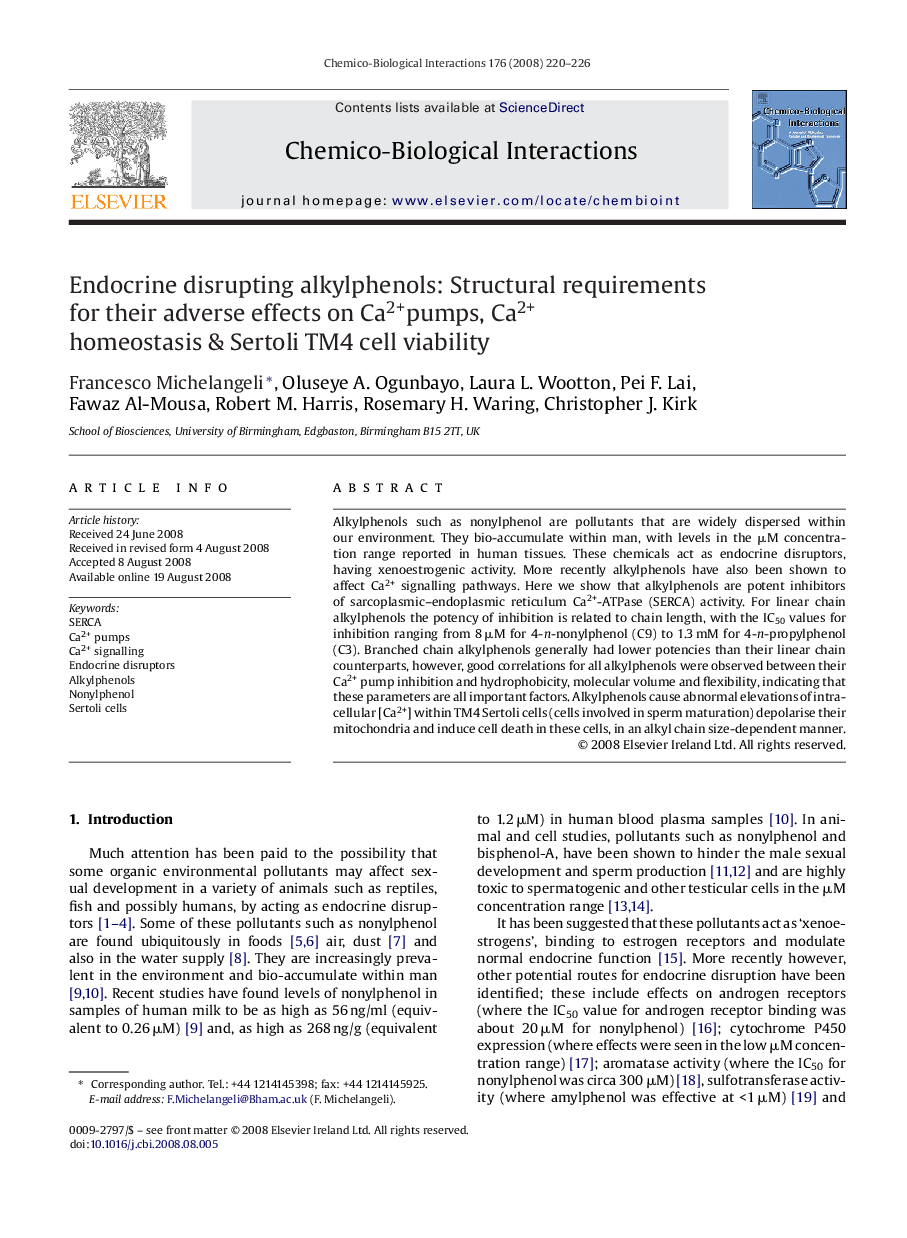| Article ID | Journal | Published Year | Pages | File Type |
|---|---|---|---|---|
| 2582428 | Chemico-Biological Interactions | 2008 | 7 Pages |
Abstract
Alkylphenols such as nonylphenol are pollutants that are widely dispersed within our environment. They bio-accumulate within man, with levels in the μM concentration range reported in human tissues. These chemicals act as endocrine disruptors, having xenoestrogenic activity. More recently alkylphenols have also been shown to affect Ca2+ signalling pathways. Here we show that alkylphenols are potent inhibitors of sarcoplasmic-endoplasmic reticulum Ca2+-ATPase (SERCA) activity. For linear chain alkylphenols the potency of inhibition is related to chain length, with the IC50 values for inhibition ranging from 8 μM for 4-n-nonylphenol (C9) to 1.3 mM for 4-n-propylphenol (C3). Branched chain alkylphenols generally had lower potencies than their linear chain counterparts, however, good correlations for all alkylphenols were observed between their Ca2+ pump inhibition and hydrophobicity, molecular volume and flexibility, indicating that these parameters are all important factors. Alkylphenols cause abnormal elevations of intracellular [Ca2+] within TM4 Sertoli cells (cells involved in sperm maturation) depolarise their mitochondria and induce cell death in these cells, in an alkyl chain size-dependent manner.
Related Topics
Life Sciences
Environmental Science
Health, Toxicology and Mutagenesis
Authors
Francesco Michelangeli, Oluseye A. Ogunbayo, Laura L. Wootton, Pei F. Lai, Fawaz Al-Mousa, Robert M. Harris, Rosemary H. Waring, Christopher J. Kirk,
